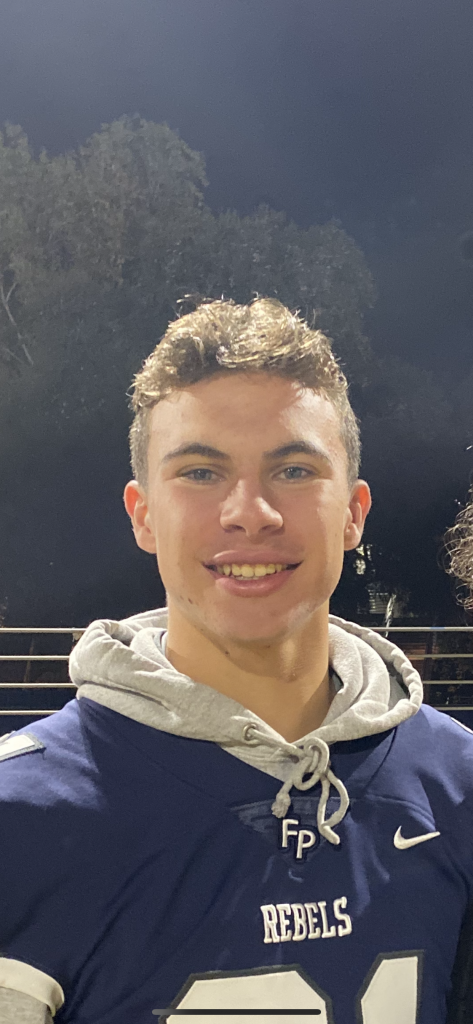Course Overview
SOC 200: Sociology of Sport provides an introduction of sports through a sociological perspective by examining various purposes, theories, methods and ideas of the institution of sport. Using a variety of course readings, critical discussions, videos, and assignments, students in this course are encouraged to view sports and physical activity from a sociological lens.
The objective is for students to form their own critical insights into established structural realities, power relations, and social forces that shape, and are shaped by, the institution of sports. A central foundation of the course requires students to apply a sociological imagination to their own consumption of, and participation in, sports within their own lives. Students will have the opportunity to engage with a topic discussed throughout the course (militarization of sports, race & sports, gender & sports) to provide an interactive presentation/project.
Discussion about how sports have been and continue to be affected by Covid-19 adds to the list of current issues within sports the course will address.
All students who successfully complete the course will receive a Certificate of Completion and have the opportunity to request a Syracuse University credit transcript.
Learning Objectives
Students will be able to:
- Identify, articulate and apply the sociological perspective to the study of sport
- Articulate and apply central principles and theories developed through sociological inquiry central to the sociology of sport
- Articulate and apply fundamental elements of social research
- Connect social structures including race, class, gender, etc to the institution of sport
- Critically examine how sports have been shaped by activism and social movements
- Consider sport in cultural, political and economic contexts
- Learn to communicate sociological research and theory effectively
Course Information
Course Prefix and Number: SOC 200
Format: On Campus (at Syracuse University)
Eligibility: Students must be of rising high school junior or senior status – or a 2025 high school graduate.
Credit: 3 Credits
Grading: A-F
- Residential: $4,895
- Commuter: $3,919
Program rates are subject to change and will be approved by the board of trustees. Discounts and scholarships are also available.
Program Information
Summer College – On Campus: Experience what college is really like: take a college-level course, live in a residence hall, have meals with friends in a dining hall, and participate in activities and events on campus.

“Taking SOC 200: Sociology of Sport was initially due to my love of sports. I have never been interested in the sociology aspect before, but this class really helped open my eyes to just how interesting and important sociology is. The way Professor Bartholomew incorporated modern-day actions and moments to those that happened 50 years ago was terrific. I could not have wished for a better summer pre-college experience”
— Tommy P., Summer College Online Sociology of Sport Student, 2020
Course Dates and Details
| Program | Course Dates | Class Time (Eastern Time) | Credit/Noncredit |
|---|---|---|---|
| Summer College – On Campus | 2- Week Session II: Sunday, July 20 – Friday, Aug. 1, 2025 | MTWThF; 9 a.m. – 1 p.m. | 3 Credits |
To see if this course is ‘open,’ refer to the full course catalog.
Course Requirements
Required Textbooks
Please know that any supply purchases are not included in the overall tuition fee. Students will need to budget for additional course supplies, textbooks, supply kits, etc.
Below are the required textbooks from Summer 2024. Textbook requirements are subject to change for Summer 2025.
- Loving Sports When They Don’t Love You Back, by Jessica Luther & Kavitha A. Davidson.
- The Heritage: Black Athletes, a Divided America, and the Politics of Patriotism, by Howard Bryant.
Typical Day
Tentative Schedule
A typical day is lecture and discussion, with some video research mixed in. Students must attend class Monday-Friday, from 9 a.m. to 1 p.m.
When class is over, and on weekends, students can look forward to various Summer College – On Campus activities to meet and connect with other students! Check out our On Campus Experience page for more information!
Faculty Bios
Jacob Bartholomew

Jacob Bartholomew is a PhD Candidate in the Sociology department at Syracuse University. His areas of study include race and racism, social justice, education, and the sociology of sport. As an avid sports fan, Bartholomew believes that when understanding larger links between social systems and the sports we love, we become more informed sports fans. In his spare time, he enjoys watching baseball, traveling and spending time with his family.
